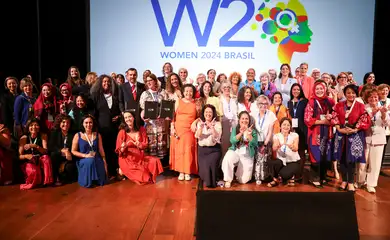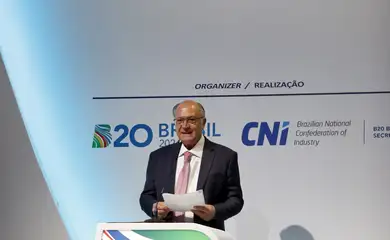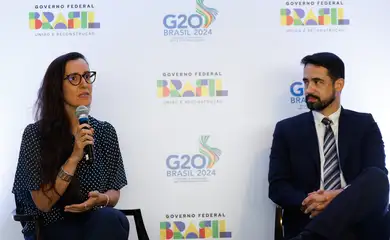G20 ministers commit to equity in access to health care

The health ministers of the G20 countries approved two declarations at the end of the meeting held in Rio de Janeiro over the last three days. The first deals with the priorities listed consensually by the group of nations and the second addresses issues related to climate change and the One Health approach.

The document dealing with priorities was named the Rio de Janeiro Declaration of G20 Health Ministers. It establishes the commitment to seek improvements so that health systems around the world reach better levels in the next two years than they did before the COVID-19 pandemic.
Brazilian Minister Nísia Trindade pointed out that equity in access to health care is the document’s guiding principle. She highlighted the building of a coalition for the local and regional production of health care technology. “This declaration also reiterates issues of care for health workers, taking into account the needs of the countries. There is often a process of attracting human resources that does not respect diversity. This was discussed at length and is also part of the declaration, and also the digital transition, an agenda that came from previous presidencies,” she added.
The second document approved was the G20 Health Ministerial Declaration on Climate Change, Health and Equity, and One Health. It mentions concerns about the risks to human health arising from events such as heat waves, floods, droughts, and forest fires.
“The importance of adaptation and mitigation plans for the impacts of climate change that consider health as a central theme was made very clear,” said the minister.
The One Health approach was the focus of discussions throughout the second day of the event. It recognizes the interconnection between human, animal, plant, and environmental health. Its implementation involves integrated efforts—from measures to prevent zoonotic diseases to promoting food safety and protecting the environment.
Brazil as president
The ministerial meeting is part of the program for Brazil’s presidency of the G20, which brings together the world’s 19 largest economies, as well as the European Union and more recently the African Union. At the summit in November, the presidency will be transferred to South Africa.
In the view of South African Health Minister Aaron Motsoaledi, Brazil’s leadership leaves a positive legacy. “We will follow the same path in 2025. We have learned a lot from Brazil’s experience, with the ambitious targets it has set. South Africa’s presidency will be guided by the principles of solidarity, quality, and sustainability to reduce poverty and boost inclusive growth. Health work will be based on the principle of universal health coverage. We will take forward some of the agendas that have gained prominence during the Brazilian presidency, such as pandemic prevention, response preparedness, and climate change,” he declared.




